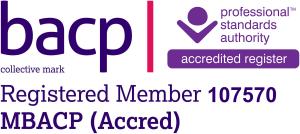These are a few of the different areas I am able to work with, if you do not see or identify your distress/issue in this list do not worry but please contact me with confidence.
- Abortion - Abortion is the medical process of ending a pregnancy so that it does not result in the birth of a child.
- Abuse - Emotional, Physical or Sexual
- Adoption - If your life has been affected by adoption then it may be you are looking for some answers to specific questions, or you may just feel as though you require some additional support in your life.
- Anger Management - Anger is a basic emotion which has allowed us to survive as a species. ?Anger, like all the emotions, involves physiological and chemical changes in the body. Heart rates and adrenaline levels are affected as the body experiences anger. For some people these surges can become addictive and destructive. There is a fine line between acknowledging anger and venting it until it is out of control.
- Anxiety - It is normal and healthy to feel sad or worried about life and its problems and pressures. But when worry casts a cloud over everyday life you may be suffering from anxiety or depression or a mixture of the two.?A quarter of the population will suffer from anxiety at some time in their lives - even more than those affected by depression. It is the major reason for absence from work. The fear-adrenaline-fear cycle, if unbroken, eventually brings about a state of stress and extreme fatigue.
- Bereavement and loss (also consider redundancy, homelessness and weight loss). The greatest tragedy in life is losing those we love.?If you have experienced the death of someone who was very important to you, you might be finding it very difficult to adjust to the immense changes happening in your life right now. Grief can shake everything up - your beliefs, your personality, and even your sense of reality.
- Bullying - Bully behaviour is a very common part of human life. Studies show it occurs all over the world in all kinds of group situations, from school and work to the family home. A bully is a person who intends to make another person feel powerless, worthless and afraid by emotionally, verbally or physically abusing them repeatedly. Experts say bullying has three main features:
- deliberate aggression
- unequal power
- pain and distress.
- The experience of being bullied can be very traumatic. According to Beat Bullying, at least 20 UK children and teenagers kill themselves each year because of bullying. The number of people who have suicidal thoughts, engage in self-harm, or attempt suicide because of bullying is significantly higher.?The thought that someone dislikes you enough to want to hurt you can be devastating. You might wonder what you've done to deserve that kind of treatment, you might start to question yourself and your value as a person - you might even begin to believe that you are worthless. If someone is making you feel worthless, powerless or afraid, then tell someone who can help and put a stop to it now. Counselling can help children, teenagers and adults understand the forces at play in bullying, build the confidence to break out of their role as victim, and treat any anxiety, depression, low self-esteem, or suicidal thoughts caused by bullying.
- Coping with Changes - For some people change is very difficicult, unsettling and can bring up anxiety and stress while others seem to thrive with changes. If you are struggling to embrace a particular change or more please don't suffer in silence there are many ways that can help you cope and embrace change.
- Depression - Depression is a common condition that will affect one in three people at some time in their life. It is a complicated illness with many different symptoms and causes Many sufferers become emotionally detached from those around them and withdraw into a world of their own. Some describe it like being in a prison with no windows or doors, which can alienate friends and relatives, increasing the isolation.
- Discrimination
- Eating Disorders - Eating disorders are extremely common, however can be serious and even life threatening if not treated appropriately.
- Low Self Confidence - Self-confidence is about trusting your own judgement and feeling comfortable with your abilities and powers. It is the means to realise your full potential and be the person you want to be. Self-confidence allows you to feel secure in the world and allows others to feel safe that they know what to expect of you. It is made up of a variety of factors, including how you present yourself physically to the world and how you relate to other people.
- Low Self Esteem - Self–esteem is how you think and feel about yourself; this may be positive, negative or move between the two points. This usually dictates how you live your life and the decisions you make – and how you view others too.?Working to improve your self-esteem takes time and effort. It requires courage and honesty to confront the things in yourself you don’t like but long-term it is a worthwhile task which should help you to feel better about yourself and your life.
- Mental Health - A mental illness is a brain disorder that causes an individual to think, act and feel differently to other people. It is quite common for the disorder to disrupt a person's whole life and prevent them from going about their day normally without thinking these disturbing thoughts.?Most individuals with a mental illness are embarrassed about their thoughts and don't want to seek help or tell anyone about it, however mental disorders are very common and there is a great deal of help available to those suffering.
- Self Worth
- Stress - Stress is a part of life that we all encounter from time to time. A little stress can be helpful, kicking us into action to get things done; but too much can affect us both mentally and physically. Stress is the second major cause of illness at work after back pain, and is becoming more and more of an issue in today's culture.?Everybody is unique and stress affects people in different ways - some thrive off it, while others find it incredibly difficult to deal with. How we react to stress depends on a variety of factors, including our personal temperament and the type of stress we're dealing with.
- Redundancy
- Relationship issues - Relationship Counselling can help improve the way we relate to the people around us and break free of old patterns to realise our potential. It is usually an integral part of personal or individual work.?Self-respect and liking oneself are the most important ingredients for any good relationship. If these are in short supply you may consider counselling to address them. Any relationship that diminishes a person's self-esteem should be examined closely.
Read more about these areas on the Conselling Directory's webpage at: http://www.counselling-directory.org.uk/areaspage.html
These are just a few of the different issues that I am able to help you with, but all other issues can be discussed openly.




